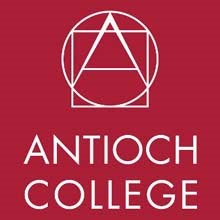The Board
of Trustees has approved a plan to enroll 75-85 new students each year
until 2016. Horace Mann Fellowships to be offered to students who enroll in
fall 2013 and 2014.
The Antioch College Board of Trustees recently
endorsed a “stable growth” formula that aims to expand the student population
from about 100 at the current time to approximately 250 by 2016, a plan that
would allow the College to continue to offer the full-tuition Horace Mann
Fellowships to all students who enter the college in the 2013 and 2014 academic
year.
“This
clearer understanding of the projected rate of growth ensures that all Antioch
College students will engage with a high-quality, rigorous, liberal arts
curriculum,” Board Chair Frances Horowitz said. “All Antioch students will experience
a variety of co-op placements; participate in community governance; and reside
on a campus dedicated to fostering sustainable living.”
The
College expects to enroll between 75 and 85 new students each year for the next
three years. The growth strategy is timed with a continued renovation of the
historic 160-year-old campus and a multi-phased, multi-year accreditation
processes.
The College received more than 3,100 applications for fall 2012
admission; 5.2 percent of those applicants received acceptance letters, making
Antioch one of the most selective colleges in the U.S. Seventy-five new
students arrived for fall orientation, joining a class of 33 returning
students. Many students turned down offers from other elite colleges to become
partners with the administrators and faculty in rebuilding the institution.
While most members of Antioch’s new class are first-year
students, 17 percent are transferring from other colleges to attend Antioch.
Fifty-three percent of the students entering the College in October are from
outside of the state of Ohio. The average GPA of those incoming students is
3.69 (unweighted). Among students who submitted test scores with their
applications, the average SAT verbal and math score was 1180; the average ACT
score was 27 (Antioch is a test-optional school).
A
storied college with a history that includes deep connections to the U.S. civil
rights and social justice movements, as well as science innovation, Antioch is
in its second year of independent operation since its much-publicized 2008 closure. Following months of
negotiations, an alumni-led group in September 2009 purchased the campus,
rights to the institution’s endowment, its 1,000-acre Glen Helen Preserve, and
its award-winning The Antioch Review.
The College’s new trustees hired Mark Roosevelt, a former Pittsburgh Schools
superintendent and former Massachusetts legislator, as the college’s new
president. With just six tenure-track professors on board, the College opened
to a class of 35 students in the fall of 2011.
Antioch’s campus remains a work in progress. The 1943 Birch Hall
dormitory, a design of famed architect Eero Saarinen, is home to the first
class of students. A nearly 160-year-old dormitory, North Hall, has gotten a
$5.7 million renovation that will make it the oldest building in the U.S. to
meet LEED Gold Standard for sustainable construction. And the historic 1930s
Science Building—where the likes of Leland Clark and Mario Capecchi studied
while working on their bachelor’s degrees—will begin a $3.5 million partial
renovation beginning this fall.
Antioch College was an early pioneer of the cooperative
education program that requires students to complete full-time periods of paid
work as part of their education. The College was also one of the first fully
coeducational and racially integrated colleges in the U.S.
Cooperative education remains a core component of the Antioch
education; all students complete at least four quarters of full-time work off
campus. Additionally, the general education curriculum includes emphases on
language acquisition (most students will do one year of language study leading
to novice-high proficiency in a second language) and global issues (students
are required to complete four of six global seminars on food, water, energy,
health, governance, and education).
Antioch College’s alumni include noted television producer and
director Rod Sterling; civil rights activist Coretta Scott King and her sister,
Edythe Scott Bagley; Nobel Prize winner Mario Capecchi; Congressional Delegate
Eleanor Holmes Norton; and novelists Nova Ren Suma and Jaimy Gordon.








No comments:
Post a Comment